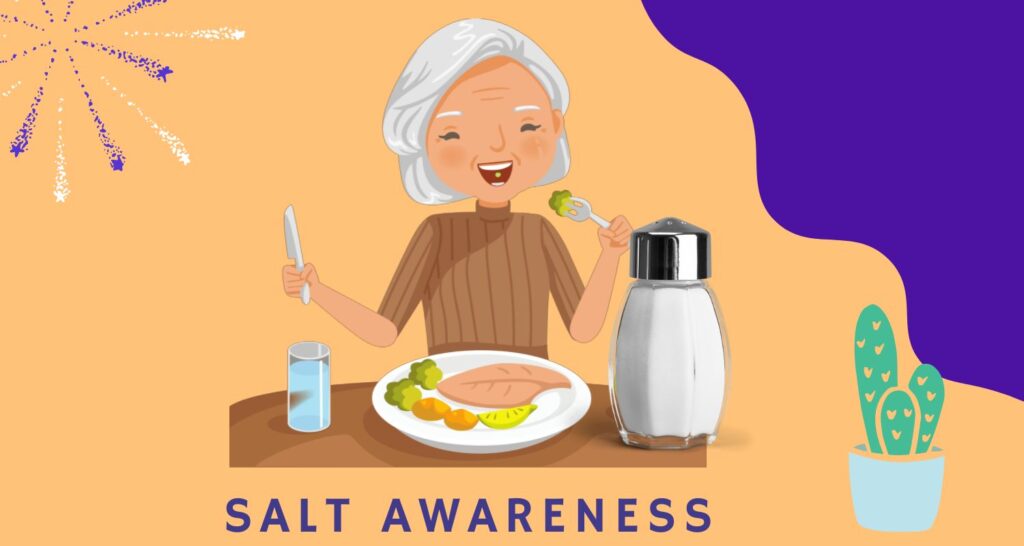Salt, also known as sodium chloride, is an essential mineral that plays a crucial role in our body’s functions.
Salt helps regulate fluid balance, muscle contractions, and nerve impulses. However, excessive salt intake can have negative effects on our health. This blog explores the effects of salt on the body, why it’s important to manage salt intake, alternatives to salt for better health, and tips to reduce salt in the diet.
Salts’ effect on the body
Salt is a key component of our body’s fluids, and it helps regulate the balance of fluids inside and outside our cells. When we consume salt, it’s broken down into sodium and chloride ions, which are absorbed into our bloodstream. Sodium is an essential electrolyte that helps regulate fluid balance, muscle contractions, and nerve impulses, while chloride is important for maintaining the acidity of our stomachs.
Why we need to manage salt intake
According to the World Health Organisation, the recommended daily intake of sodium for adults is less than 2,000 mg, or 5 grams of salt. However, the average Australian consumes nearly double this amount, often without realising it. Many processed and packaged foods are high in sodium, and salt can sneak into our diets without us even adding any to our meals.
Managing salt intake is important for maintaining good health and preventing chronic diseases. High sodium intake is linked to high blood pressure, which can increase the risk of heart disease, stroke, and cause fluid retention, which can lead to swelling. By reducing salt intake, we can lower blood pressure, reduce the risk of heart disease and stroke, and improve overall health.
Alternatives to salt for better health
While salt is a key ingredient in many recipes, there are several alternatives that can be used to add flavour without adding sodium. Herbs and spices, such as garlic, ginger, and cumin, can add flavour and aroma to dishes without adding salt. Lemon juice and vinegar can also be used to add tanginess and flavour to foods.
Tips to reduce salt in your diet
• Read food labels: Check the sodium content of packaged and processed foods before buying them. Choose low-sodium or no-sodium options when possible.
• Use herbs and spices: Experiment with different herbs and spices to add flavour to dishes without adding salt.
• Cook at home: When cooking at home, use fresh ingredients and reduce the amount of salt used in recipes.
• Eating out at restaurants can contribute to excessive salt intake, so avoid the very salty options and choose the lower sodium items on the menu.
• Be mindful of condiments: Condiments, such as soy sauce, ketchup, and salad dressings, can be high in sodium. Choose low-sodium options when possible.
Reducing your salt intake doesn’t have to mean bland meals and you can stop salt sneaking into your diet and still enjoy nourishing and satisfying food.
If you are struggling to balance your salt intake and would like some more practical strategies, dietitians can assess your unique needs and help you reach your health goals with menu and meal planning that keep your food delicious and meal preparation easy.
MORE BLOGS
Living life to the full after Ostomy surgery
Nutrition and the immune system


